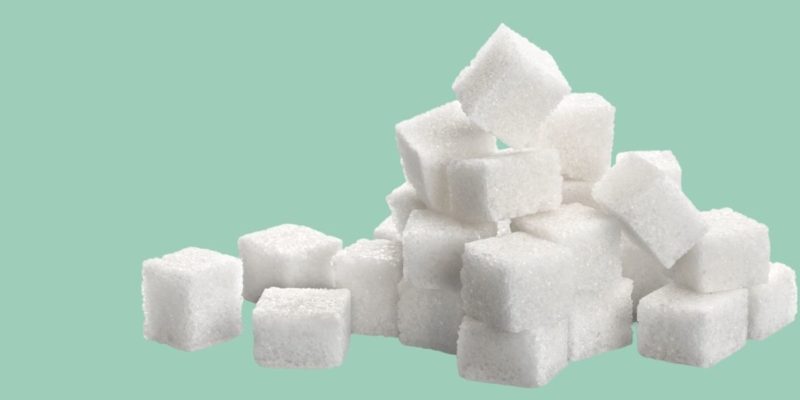Your Guide to Natural Sweeteners

Looking to get away from the unhealthy effects of sugar? If so, you might be trying to decide on a natural sweetener to use in your foods and beverages.
There are several options out there, including stevia, erythritol, and xylitol.
Which sweetener is the best? In this comprehensive guide, we will introduce you to these and other natural sweeteners and their benefits and drawbacks.
But first, let’s talk briefly about why you should consider reducing your sugar intake, and also why you might not want to use artificial sweeteners.
Why Avoid Sugar?

Sugar is high in calories. When you consume sugar, you are not enhancing your health in any way, but you are potentially packing on the pounds.
Eating lots of sugar can contribute to the development of liver disease.
High sugar intake can be associated with the development of insulin resistance as well. Metabolic syndrome, diabetes, and cardiovascular disease may follow. Even cancer may be a potential issue.
And have we mentioned that sugar is addictive?
So, those are all great reasons to stay away from sugar and consider a natural alternative instead.
Why Avoid Artificial Sweeteners?

Okay, you don’t want to eat sugar. But why not consider an artificial sweetener such as aspartame or sucralose?
The consumption of artificial sweeteners also is associated with weight gain.
Healthy microbes in your digestive system may respond poorly to artificial sweeteners. You need healthy gut bacteria both for reasons of digestion and immunity.
Some people get headaches when they consume artificial sweeteners. Seriously, who needs more of those?
Last but not least, depression may be an issue when eating artificial sweeteners.
Top Natural Sweeteners to Consider
So, you can see now why you want to stay away from not only sugar but artificial sweeteners as well. What natural sweeteners can you try instead? Let’s go over some popular options.
- Stevia

Stevia is an extract made from a plant called Stevia rebaudiana. For centuries, indigenous peoples in South America have used it as a natural sweetener. It became big in Japan in the 1970s, and you can now buy it globally.
Stevia contains sweet compounds called glycosides. You need very little stevia to sweeten up a beverage.
Because a little bit goes a long way, one container of stevia will probably last you a good while!
Pros:
- Stevia has almost zero calories.
- There is a small amount of protein, crude fiber, and ash in stevia.
- According to some research, blood pressure may improve with stevia.
- Oxidized LDL cholesterol levels may also drop when you consume stevia.
- Eating stevia may reduce blood sugar.
- Insulin may improve with stevia.
- Stevia may have anti-inflammatory benefits.
Cons:
- Stevia has a slightly bitter flavor under its sweetness. You probably won’t notice this that much after a while. Make sure you do not use too much stevia. If you do, the bitterness is far more noticeable, and you do not need a lot to get the sweetness you want.
- Some stevia products on the market contain additives, so watch out for those.
Verdict: With its low calories and its possible benefits for health, stevia is one of the best natural sweeteners around.
2. Erythritol

Erythritol is a sugar alcohol made using corn or wheat starch.
The flavor of this natural sweetener is somewhere in between that of table sugar and stevia.
A gram of erythritol contains just 0.24 calories.
One study reports that Erythritol consumption acutely improved small vessel endothelial function, and chronic treatment reduced central aortic stiffness. Erythritol may be a preferred sugar substitute for patients with diabetes mellitus.
Pros:
- This natural sweetener contains almost no calories.
- Your insulin levels and blood sugar will not be adversely impacted by consuming erythritol.
- Erythritol may have cardiovascular benefits.
- Research shows that this sweetener may be good for oral health.
Cons:
- Sometimes, digestive discomfort is an issue for people consuming erythritol.
- If the erythritol is derived from corn, make sure it was not grown with Roundup.
Verdict: Erythritol is another of the best natural sweeteners out there. It may be good for cardiovascular health and does appear to be good for dental health.
3. Xylitol

Another sugar alcohol worth considering as a natural sweetener is xylitol.
Are you diabetic or pre-diabetic? One study explains that xylitol can be a better sweetener than sucrose to maintain diabetes-related parameters at a physiologically safer and stable condition.
Like erythritol, xylitol might improve dental health.
One gram of xylitol contains 2.4 calories. So, that is not as low as erythritol, but it is still pretty low.
Pros:
- Xylitol is relatively low in calories.
- This appears to be another good option for patients with diabetes or pre-diabetes (or anyone who simply wants to avoid those types of health issues).
- Oral health may be protected by xylitol consumption.
Cons:
- As is the case with erythritol, xylitol can sometimes cause digestive issues (namely loose stools).
- If xylitol is made from corn or corn cobs, you need to watch out for Roundup.
Verdict: Xylitol is a popular natural sweetener and another good option if it does not give you digestive issues.
4. Yacón syrup
The yacón plant’s roots have been used to make a natural sweetener for hundreds of years.
If you live in Bolivia, Brazil, or Peru, you probably have used yacón syrup before, but if you live elsewhere, you may not be familiar with it.
This syrup doesn’t contain a lot of sugar or calories. Its glycemic index is 40-44..
The flavor of yacón syrup is kind of like caramel, but not as sweet. If you like maple syrup or honey, you probably would enjoy it.
Pros:
- Satiety may improve when consuming this syrup. So, if you are trying to lose or maintain weight, it might be helpful.
- Even though there is still some natural sugar in yacón syrup, it has a lower glycemic index than table sugar and fewer calories.
- Many people enjoy the flavor of yacón syrup.
Cons:
- There is fructose in this syrup. If your goal is to escape it entirely, you will need another product.
- If you do not live in an area where yacón syrup is popular, finding it may be a challenge. You probably will have to special order it.
Verdict: The delicious taste of yacón syrup make it an enjoyable alternative to table sugar. Even with its fructose content, it is also a healthier choice compared to table sugar.
5. Honey

In a similar vein to yacón syrup, you can consider using honey as a natural sweetener.
Honey is a lot easier to come by regardless of your location, and you probably already know if you enjoy its taste.
Pros:
- Some studies suggest that honey might not be a bad choice for type 1 diabetes patients.
- Many people find honey soothing to digest.
- Honey contains vitamins, minerals, and micronutrients.
- You might like how honey tastes.
Cons:
- Honey contains fructose and glucose and is heavy on carbs.
- This is not as cost-effective a choice as, say, stevia.
Verdict: Despite containing fructose and glucose, honey may be better than table sugar, since it at least delivers some nutrition. It is also tasty.
6. Maple syrup

Maple syrup, like honey, is full of sugar. Sucrose accounts for about two-thirds of its volume.
But hey—at least it contains some vitamins, minerals, and antioxidants.
Pros:
- Maple syrup tastes great.
- The glycemic index of maple syrup is 54. Contrast that with table sugar’s glycemic index of 65.
- There is some nutrition in maple syrup (though not a lot for the small amount you are eating).
Cons:
- Eating maple syrup is not a way to escape from sugar, calories, and carbohydrates.
Verdict: Maple syrup is not the healthiest choice, but it is still arguably better than table sugar.
7. Molasses

If you want to try a natural sweetener that is surprisingly nutritious, consider backstrap molasses.
A tablespoon of molasses does still contain 11.1g of sugar, but the glycemic index of 44 could be worse.
Pros:
- In one tablespoon of molasses, you will get: 4% of your daily recommended calcium, 5% of your daily recommended iron, 12% of your daily recommended magnesium, 8% of your daily recommended potassium, 15% of your daily recommend manganese, and 5% each of your daily recommended selenium and copper.
- Molasses is tasty.
- Molasses has a lower glycemic index than table sugar.
Cons:
- Molasses is very sugary.
Verdict: Molasses is a tasty alternative to table sugar that contains a surprising amount of nutrition. It does contain a lot of sugar as well though.
Enjoy Sweetening Your Foods and Beverages with Healthy Alternatives to Sugar
Making the switch away from sugar and artificial sweeteners may feel overwhelming at first, particularly when it comes to learning how to bake desserts with them.
A good starting point is to stop sweetening tea, coffee, and other beverages with sugar and artificial sweeteners, and start using a natural sweetener instead.
You can also stop purchasing products with added sugar or artificial sweeteners, and buy products that were made using natural sweeteners.
After you get used to those changes, you can start learning how to make desserts with natural sweeteners.
While it will take some time to adjust, in the long run, you will probably feel quite good about your decision to switch away from sugar and artificial sweeteners.
You may start feeling better physically and psychologically, and you will feel a lot less guilty indulging in sweet treats when you know they are not contributing to adverse health effects like obesity or metabolic syndrome.





